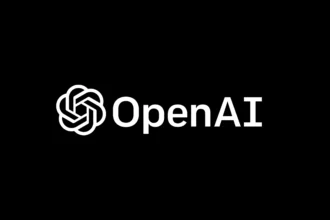Can OpenAI be used for commercial use? Can OpenAI be used for commercial use?
Yes, as long as you have an OpenAI Key from OpenAI itself. But hold your horses! As magical as this technology may seem, using OpenAI for commercial purposes comes with its own set of rules, guidelines, and of course, opportunities. Let’s dive into the mechanics behind leveraging OpenAI and how it can enhance your business strategies, engage your audience, and drive genuine value.
Table of Contents
ToggleWhat is OpenAI?
Before we get into the nitty-gritty of commercial use, let’s backtrack a bit. OpenAI is a pioneering artificial intelligence research organization that aims to ensure that artificial general intelligence (AGI) benefits all of humanity. They are the brain behind some compelling language models, like the widely-known ChatGPT and the text generation giant GPT-3. These technologies have gained significant traction due to their ability to understand and generate human-like text based on input, making them a perfect match for various commercial applications.
Acquiring Your OpenAI Key
To begin your journey into the world of OpenAI, the very first step is to acquire your OpenAI key. But, what exactly is an OpenAI key? In simple terms, it’s your golden ticket to access OpenAI’s services and models.
Once you register for an API key via the OpenAI website, you’ll receive a unique identifier that allows you to authenticate your applications against OpenAI’s services. Without this key, trying to utilize any features of OpenAI would be akin to trying to enter a VIP club without an invitation. This key is crucial for responsible usage. Misusing an API key can lead to penalties, including termination of access. So, hold onto it like it’s the secret to the universe.
Commercial Applications of OpenAI
Now that we have our key secured, let’s explore the kinds of commercial applications that OpenAI opens up. The possibilities are immense, and depending on your industry and creativity, you can leverage OpenAI for a plethora of use cases. Here are some notable ones:
- Content Creation: OpenAI can generate unique articles, blog posts, social media content, and even poetry. Businesses can use it to scale their content marketing efforts effectively.
- Customer Support: Develop chatbots that can handle customer inquiries, providing spontaneous, human-like responses at any hour of the day! This can significantly reduce response times and enhance customer experience.
- Data Analysis: OpenAI can process and analyze large sets of data to extract meaningful insights. This aids in decision-making processes for businesses, allowing them to strategize based on evidence rather than guesswork.
- Product Recommendations: Incorporate recommender systems in your e-commerce platforms using OpenAI models to provide personalized experiences for customers.
- Translation Services: OpenAI can assist in translating languages, which can be invaluable for businesses aiming for an international reach.
Considerations Before Using OpenAI Commercially
With tremendous power comes tremendous responsibility. While the advantages of OpenAI are plentiful, using it commercially necessitates some serious considerations.
1. Compliance with OpenAI’s Use Case Policy: You must ensure that your use case aligns with OpenAI’s use case policy. OpenAI has stringent guidelines about the nature of content that can be generated. For instance, generating harmful or misleading content is a big no-no. Whenever you’re thinking of using OpenAI, consider the ramifications and adhere to ethical standards.
2. Intellectual Property: The content generated by OpenAI also brings forth questions of ownership. As businesses begin employing AI-generated content, the implications for copyright and intellectual property need to be evaluated. Ensure you’re well-versed or consult a legal expert before claiming ownership of AI-generated work.
3. Reliability: While OpenAI can produce impressive results, it’s not perfect. AI sometimes generates inaccurate or biased responses. Always maintain a human check on the output to ensure quality and authenticity.
Implementation Steps
Ready to take the leap? Here’s a structured plan to help your business start utilizing OpenAI smoothly:
- Identify Your Need: Pinpoint which aspect of your business can benefit from OpenAI. Is it content generation, customer service, or data analysis? Define your goals clearly.
- Obtain Your OpenAI Key: Sign up at OpenAI’s website, and ensure you have access to the API key. This is your entry point into leveraging the technology.
- Familiarize Yourself with the API: It’s essential to understand how to interact with OpenAI’s API. Review the documentation thoroughly so that you know what to expect.
- Start Small: Test out OpenAI on smaller projects. Gather data on performance and tweak your approach based on what you learn.
- Gather Feedback: Collect input from both employees and customers about their experiences. This helps to refine systems and keep the human element intact.
- Scale Up: Once you feel comfortable with smaller projects, consider scaling up your efforts. Integrate OpenAI into more complex systems, maximizing its potential for your business.
Success Stories: Companies That Got It Right
If you’re still intrigued but unsure, let’s draw inspiration from organizations that are leading the charge in successfully integrating OpenAI into their summer of commerce.
1. Copy.ai: This startup has harnessed OpenAI’s capabilities to create a user-friendly platform designed specifically for marketing and copywriting. Their tool has proven to boost creativity for marketers, enabling them to generate ideas, drafts, headlines, and more within minutes.
2. Shopify: The eCommerce giant has integrated OpenAI into its platform, allowing merchants to generate product descriptions and customer interactions, streamlining their workflow and enhancing user experience.
Future of OpenAI in Commercial Use
The integration of AI, specifically models like OpenAI, suggests a bright and thrilling future for businesses across various sectors. As companies become comfortable with utilizing these technologies, we can expect AI to become a standard feature in the toolkit of modern-day entrepreneurship.
From automating mundane tasks to executing intricate data analysis, the applications are astronomical. As AI evolves, the ethical implications will need to be underscored; it is essential to remain vigilant about potential biases and accountability in AI-generated outcomes.
Conclusion
To sum it up, OpenAI is indeed a viable companion for commercial use — if you have the OpenAI key, that is. The leap into the AI realm provides an opportunity for businesses to harness the power of technology to enhance user experiences, streamline processes, and drive success. Embrace it with both arms, but remember—a healthy balance of technological automation and human oversight can take you far!
So, whether you’re a small startup aiming for the stars or a giant corporation looking to innovate, OpenAI is here to help. Go forth and make your commercial endeavors sleek, efficient, and undeniably exciting with the potential of OpenAI!



